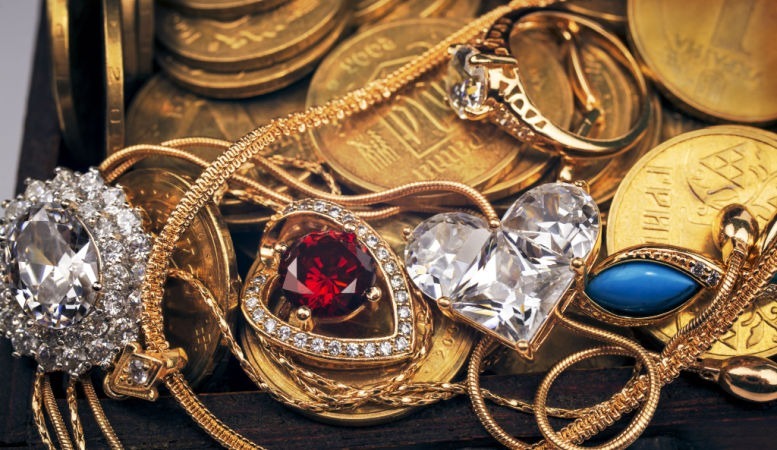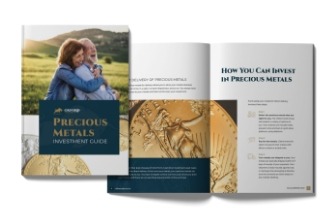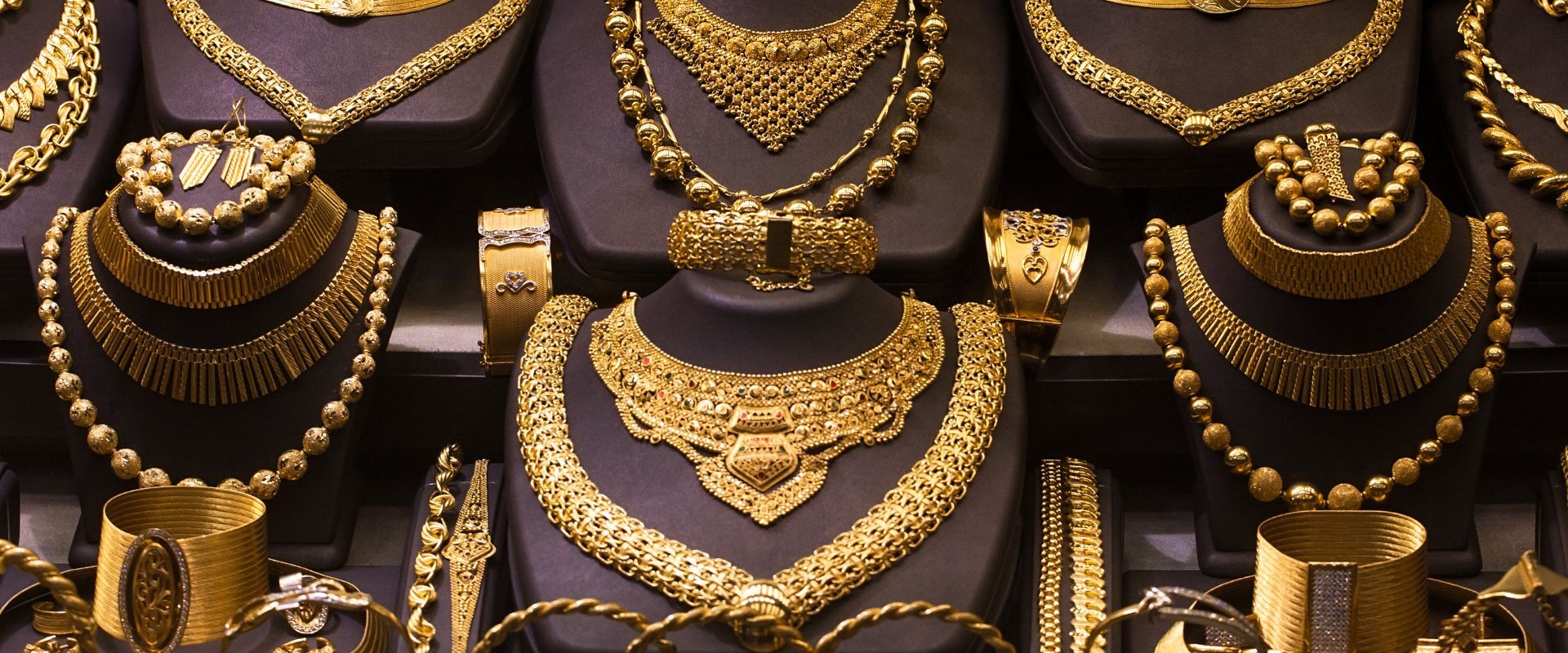Table of Contents
Selling physical gold and silver can be an excellent way to make a quick profit. However, you may have a few questions before you commit. Should I expect to pay taxes for precious metal transactions? Am I in a tax bracket that requires me to spend more? Is there any way I could sell gold and silver tax-free?
These tax laws can be tricky to navigate, no matter where you live. Fortunately, our precious metals experts at The Oxford Gold Group can explain what you need to know. Here, we answer common questions about how the IRS views gold and silver assets.
Is There a Way To Sell Gold and Silver Without Paying Taxes?
Many online sources misinform their readers about tax implications when it comes to selling gold and silver. When you spend money on these precious metals, you don’t want to have the wrong information. The Internal Revenue Service (IRS) can enforce steep penalties if you mishandle your tax reports or withhold what you owe.
So what should you expect?
First, determine what you intend to sell. Different commodities sometimes have different rules. For precious metals, you could be selling:
- Pure gold bullion, like American Buffalo Gold Coins
- Silver bullion, like Silver American Eagle Coins
- Platinum bullion, like American Platinum Eagle Coins
- Gold bars
- Silver bars
- Platinum bars
- Gold mutual funds
- Other physical precious metals, like palladium or copper
The Capital Gains Tax

When you decide to sell an investment, the IRS will levy a portion of that profit. This levy is a “capital gains tax.”
The IRS categorizes precious metals as “collectible.” This label means it can tax any items you hold for less than a year as short-term, ordinary income. Conversely, if you hold on to these precious metals for more than a year, the IRS will consider any profits as long-term capital gains.
The IRS can tax long-term capital gains on gold/silver as high as 28%. Federal tax laws apply this rule to capital assets like physical gold, some exchange-traded funds, and certificates.
What happens if you sell gold or silver at a loss? In such cases, these precious metal losses will offset any capital gains you may have the same year (more on this concept later).
How To Learn More About Capital Gains Taxes
We understand that the capital gains tax rules can be challenging to unpack. Partnering with a financial advisor is the best way to learn about your specific tax liabilities. Before you can identify what you will owe, find out to which bracket you belong.
A tax professional can determine this information based on your filing status. For example, are you single or married? If you have a spouse, are you filing together or separately?
Additionally, an accountant can help you file your capital gains tax report, so you don’t need to worry about mistakes. It’s always wise to seek reputable tax advice before selling gold or other precious metals.
Other Tax Forms
Your tax liability is not due the moment you sell gold or silver. The IRS requires you to declare capital gains on a 1040 Form when you submit your tax return.
You may also need to report some profits on a 1099-B form. This method is necessary if you work with a broker to sell gold and silver bars or certain precious metal coins. Reporting criteria vary for each capital gains tax document.
Precious metals dealers often worry about privacy when it comes time to make a sale. Generally, transactions are confidential between both parties. However, some exceptions do apply.
A precious metals dealer must file an 8300 Form if a customer used significant cash payments to complete a transaction of $10,000 or more. These reports are necessary if a customer sells large quantities of precious metal coins. They help financial authorities monitor large commodity exchanges that may indicate potential money laundering schemes.
Speak to a tax professional to determine which items warrant reporting.
IRS Requirements When You Sell Precious Metals
In the United States, you are legally obligated to report capital gains on your income tax return every year you sell assets. As mentioned earlier, the IRS uses the 1099 form to reduce the likelihood of tax evasion. It achieves this by monitoring large-sum transactions by non-corporate precious metal dealers.
You can find a copy of the reportable transaction list for your tax bracket here or by visiting the IRS website.
The Investment Form Also Affects How Much Tax You Pay

Gold and silver investments accumulate interest over time. This interest plays a factor in how much income you generate before you pay taxes. You must complete some simple math to determine your long-term capital gain.
First, subtract your short-term losses from your short-term capital gains. If the total remains positive, you have made income. Conversely, if the total comes out negative, you sustained losses. Do this with your long-term capital gains as well.
If you sustained losses on one type of capital gain, you could offset them with another. Suppose you don’t have the profits elsewhere. In this case, you can cut your losses with your regular income by as much as $3,000 every tax year.
Be aware that the IRS gives special tax treatment to some dividends on gold investments. It may tax these long-term capital gains at reduced rates. Consider speaking to your brokers to determine which dividends qualify for this special tax treatment.
Other Countries Where You Can Sell Gold Tax-Free
Selling precious metals supports the expansion of many modern economies. Nations support the value of paper currency with gold and silver stockpiles. Remember that when you sell gold or silver abroad, you are subject to that respective country’s tax laws.
These rules and regulations vary between nations. However, you can enjoy some tax leniency when making gold profits in certain locations. For example, countries that purchase gold or silver with a 0% tax include:
- Belgium
- The United Kingdom
- Germany
- Ireland
- Switzerland
- Canada
- Spain
- France
Still, such profits only occur for precious metal purchases between a company and an individual. Spend time with an accountant or lawyer to discuss other factors that may impact these policies. Foreign currency exchange rates, sales tax, and more can affect what you owe.
Can You Sell Gold and Silver Jewelry Without Paying Tax?
Even selling gold jewelry requires you to pay tax. The IRS still considers these commodities collectible. Again, your marginal tax rate for these items will depend on your filing status.
However, dealers do not need to report jewelry sales, even when exceeding a total purchase quantity of 25 ounces (the capital gains tax limit for physical gold coins and bars). This advantage allows you to buy and sell precious metals overseas without the delays of monetary declarations at the airport.
Jewelry and Coin Sales: What To Expect With Sales Tax

In 2018, the Supreme Court ruled that online stores must comply with the sales tax laws of their respective states.
Customers who buy items from precious metal dealers should expect to pay a local sales tax on all commodities. Each state has its own sales tax standard, though most have a 0% sales tax on gold bullion coins.
Be aware that the following states do include between 6-7.5% sales tax on each gold bullion piece sold:
- Arkansas
- California
- Connecticut
- Florida
- Illinois
- Indiana
- Kentucky
- Maryland
- Massachusetts
- Minnesota
- Mississippi
- Nevada
- New Jersey
- Vermont
The sales tax could significantly increase the item’s final sale price depending on the amount of gold a buyer purchases. For some, this may impact whether they choose to buy from you or a dealer out of a state with a 0% sales tax rate.
Capital Gains Tax: The Takeaways
Paying an automatic sales tax during a purchase is one thing, but paying taxes on the income you make with precious metals every year can be a hassle. However, with all this information, you can explore a couple of methods that might reduce what you will owe.
First, consider that owning physical gold or funds tied to physical gold can be costly. The IRS has the right to enforce a tax as high as 28% on precious metal dealers who profit off coin sales or similar transactions. One way to avoid these steep penalties is by investing in solutions like exchange-traded funds (ETFs).
ETFs are gold funds that allow you to invest in futures and non-physical options for other precious metals. The IRS may not treat some of these accounts as collectible.
Secondly, you can also avoid paying taxes at higher rates by holding onto precious metal assets for longer than a year. This method allows you to take advantage of some special tax options that may minimize what you owe.
Invest in Precious Metals Today
At The Oxford Gold Group, we make it easy to buy precious metals online. We are the one-stop shop for gold, silver, and platinum products. Explore our catalog and reach out to ask about how your local sales tax will affect what you pay.
We believe everyone should have access to the information they need when investing in precious commodities. Our help center can educate you on the importance of investing in a gold IRA and more.
Paying taxes after a gold sale can be confusing. Contact our team at The Oxford Gold Group for more information at 855-265-8037.








